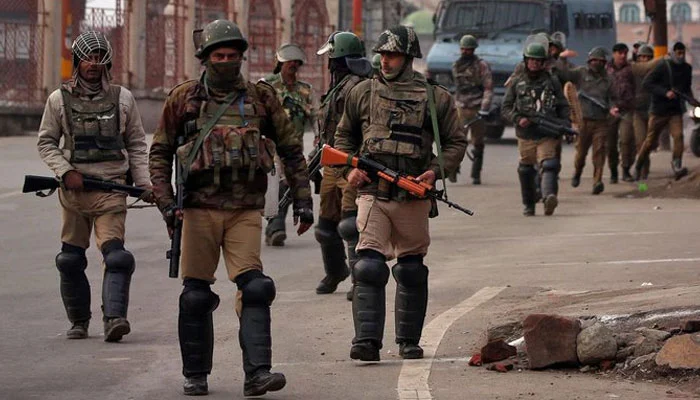DM Monitoring
New Delhi: A prolonged skirmish on December 30 resulted in yet another death in Manipur, as the violence between the Meitei and Kuki communities persists even after eight months. The deceased has been identified as James Ningombam from Mayang-langjing in the Imphal West district.
New Delhi: A prolonged skirmish on December 30 resulted in yet another death in Manipur, as the violence between the Meitei and Kuki communities persists even after eight months. The deceased has been identified as James Ningombam from Mayang-langjing in the Imphal West district.
Locals told The Wire that the firing began around 4 am near two villages, Kadanban and Nakhujang. Kadanban is Meitei-dominated, while Nakhujang is largely Kuki. The villages are located five km apart. The fight between the two communities resulted in the death of a Meitei man, Ningombam, who succumbed to injuries from a bomb blast in Kadanban village. A press note by the Manipur Police also confirmed the death of the civilian.
Furthermore, another gunfight between the two communities began in the evening in Moreh district, where a police officer was injured. The Assam Rifles (AR) were attempting to control the situation in Moreh.
A total of 142 nakas (checkpoints) were installed in different districts of Manipur, both in the hills and the valley, where the police detained 204 persons in connection with violations in various districts of the state.
During the search operation in the state, Manipur Police also recovered different types of weapons, including hand grenades, cartridges, stun grenades, ammunition and more.
So far, more than 200 people have died in Manipur since May 3, when the ethnic violence began. This data also includes the number of deaths that have occurred due to a lack of medicines.’
Earlier, Manipur’s state-owned bus service has failed to resume its public facility beyond the state’s valley areas even seven months after the ethnic violence between the Meitei and the Kuki communities had erupted.
According to a December 23 news report in the Imphal-based Sangai Express, “tight security arrangements made by the state government for [the] resumption of [the] Manipur State Transport’s bus service on [the] Imphal-Senapati-Mao and Imphal-Churachandpur routes could not yield the desired result as the buses have to turn around before reaching their destinations.”
While private buses headed to Senapati (in Manipur), Nagaland and Guwahati were reportedly able to go past Kangpokpi, the Indian Express reported that Manipur State Transport (MST) buses going from Imphal to Senapati and Churachandpur were forced to turn back along the way by Kuki civil bodies.
This was in spite of the MST ensuring that buses on the Imphal-Senapati highway were driven by non-Meiteis, according to the Sangai Express.
Its report added that while there were “just four [or] five non-Meitei passengers on board the MST’s Imphal-Senapati bus”, there was “not a single passenger on the Imphal-Churachandpur bus.”
Significantly, it also said that state-owned bus services to the tribal-dominated Senapati and Churachandpur districts were escorted by police teams.
Days after dozens of bodies of victims of the ethnic conflict were buried in the Kuki-dominated Churachandpur and Kangpokpi districts, the influential Indigenous Tribal Leaders’ Forum (ITLF) declared the ‘sealing’ of the border between the Churachandpur and the Meitei-dominated Bishnupur districts, NDTV reported.
The ITLF said it would ‘seal’ this border between December 23 and January 25, claiming it had received “intelligence inputs” about attempts by some miscreants to disrupt Christmas celebrations in the Christian-majority hill areas.
Its declaration came a day after the N. Biren Singh government issued a statement saying that the key Imphal-Churachandpur and Imphal-Mao highways were operational.
Mao is located in the state’s Senapati district.




